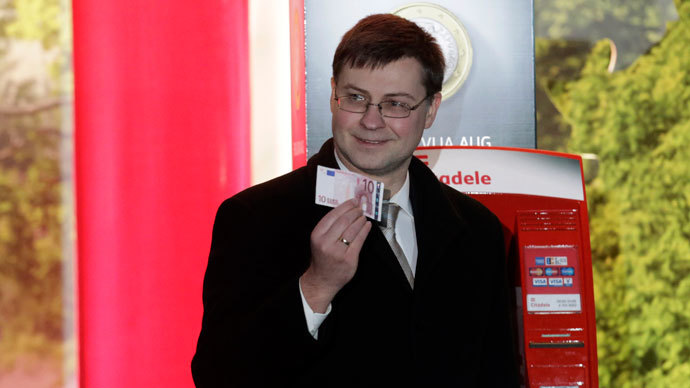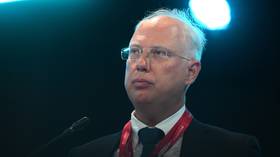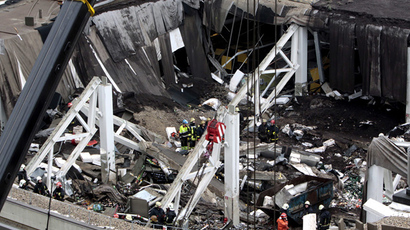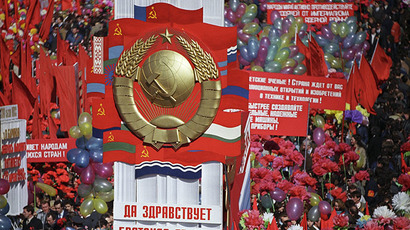Latvia joins eurozone, but half of population opposed

Latvia has celebrated the New Year by joining the eurozone, becoming the 18th member of the Europe-wide currency bloc. However, recent opinion polls show that a majority of Latvians oppose the move, with just one-fifth strongly in favor.
The euro switchover ceremony took place Jan. 1 at the HQ of the state-owned Citatele Bank – the lender reconstituted from the collapsed Parex Bank, where Latvia's worst 2008-10 economic crisis began.
"It's a big opportunity for Latvia’s economic development,” said the country’s acting prime minister, Valdis Dombrovskis, withdrawing the first 10-euro banknote from an ATM in Riga, Latvia’s capital.
But Dombrovskis, who led Latvia through its economic crisis, warned that joining the euro was an opportunity, but not a guarantee of wealth. "It's not an excuse not to pursue a responsible fiscal and macroeconomic policy," he said.
EU policymakers congratulated Latvia’s on its accession to the eurozone.
"For Latvia, it is the result of impressive efforts and the unwavering determination of the authorities and the Latvian people,” European Commission President José Manuel Barroso said. “Latvia will enter the euro area stronger than ever, sending an encouraging message to other countries undergoing a difficult economic adjustment."
However, opinions on the adoption of the euro are very mixed among people in Latvia. A Dec. 27 report by polling company SKDS shows that 50 percent of Latvians are opposed to the euro, though the figure is 8 percent down from a similar poll in October.
About 83 percent of people fear the euro will trigger unwarranted price increases, according to a recent European Commission report. The country’s Finance Ministry estimates prices will rise 2.3 percent next year, while the economy is forecast to grow by 4.2 percent.

“Latvians have been forced to adopt the euro and haven’t been allowed [to have] their say. The majority of the population is opposed to the move,” says Andris Orols, chairman of the Anti-Globalist Association, adding that Latvia will import “other goods at a cheaper rate which means [the country] will produce less and ruin the economy.”
The Bank of Latvia has even launched a PR campaign to convince its people that this year is the right time for the country to switch currency.
“Latvia is a small, open economy with both loans and deposits, very much in euros already,” said Martin Gravitis, a spokesman for the Bank of Latvia. “[Latvia’s] people will have higher ratings and lower interest rates on their loans.”
Some of the country’s politicians say the government simply had no choice.
“It’s inevitable. We took the responsibility to join the eurozone when we entered the EU. It doesn’t matter how much money there is in our pockets, it matters how much money we have,” said Janis Urbanovich, leader of the country’s Social Democratic Party.
The European Central Bank has recently warned the country that the high level of foreign deposits, mostly from Russia, in Latvian banks, was a risk factor.
Now all prices in Latvia are displayed in euros and lats, the former national currency. These double prices will remain till June 30, until the country’s full transition to the European currency.
Latvia’s economy, the fourth-smallest in the eurozone, shrank dramatically by almost one-quarter in two years, during the 2008-10 crisis. GDP recovered 5.6 percent in 2012, but to achieve this result Latvia had to implement one of the harshest austerity programs in Europe.
The Baltic state, with a population of just 2 million people, joined the EU in 2005. It is only the second Baltic nation and ex-Soviet nation to join the eurozone, after Estonia. Its neighbour, Lithuania, is expected to join the eurozone at the beginning of 2015.














